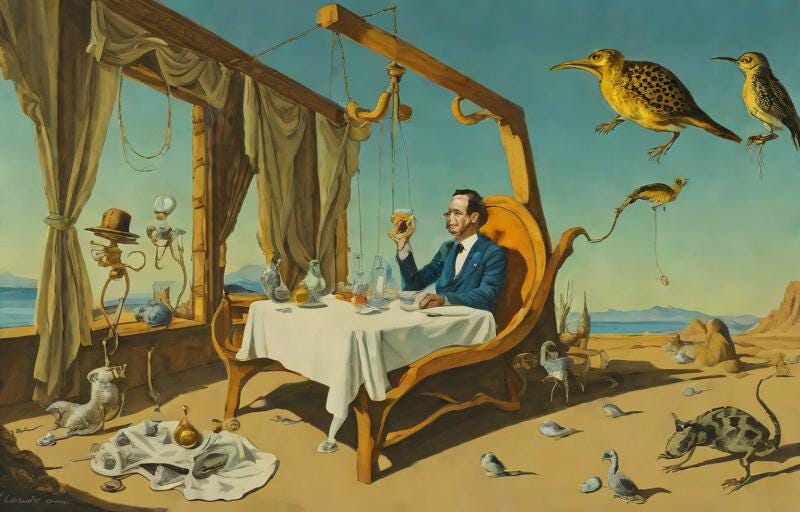The week was another week that began with an early start at the track. We headed down to Lakeside Stadium again for my daughter’s second run in the state championships. Her race was at the start of the program so we left the house in the dark, I grabbed coffee and a toasty on the way and we watched the dawn rise over the highway.
At school, we were visited by Senator Sarah Henderson, the Australian federal shadow minister for education. We toured some classrooms and I had the opportunity to explain our approach to explicit teaching and a knowledge rich curriculum. For balance, we have reached out to her opposite number, Jason Clare, offering a visit. I hope he takes us up on the offer.
This week’s Curios include the authoritative, the sensible, those cycles of life and time that return us to endless new beginnings when we should have known better and much more.
Podcast of the week
It was an absolute pleasure to talk to Susan Lambert on the Science of Reading podcast about cognitive load theory. I haven’t listened to it myself because I find that awkward, but I remember the conversation as a lively one where I rabbited on too much.
The terms ‘Science of Reading’ and the related ‘Science of Learning’ have come in for some criticism lately. Emina McLean is an advocate of structured early literacy and so someone we might expect to embrace the ‘Science of Reading.’ And yet she has written a thoughtful post rejecting the term. McLean sees it as signaling a superficial approach where granularity and attention to the detail of implementation are what matter.
I don’t think I agree with McLean in the sense that I don’t think this is the fault of these terms but of predictable human behaviour. And there are advantages to being able to name things, even if they sit in broad categories. It allows us to talk about and analyse them.
Intelligence of the week
Big boss, John Sweller, has written a paper for the Centre for Independent Studies on the nature of intelligence and the ways in which artificial intelligence is ‘intelligent’. It is a great paper that I highly recommend.
One insight that Sweller offers had, perhaps surprisingly, not occurred to me. Many have remarked on the fact that artificial intelligence had been around for a long time without making much progress. However, Sweller notes that the paradigm shift began when we hooked up computers to a vast source of knowledge — the internet. Instead of being a general purpose skill, intelligence requires vast resources of knowledge.
Sweller also explores the analogy made in cognitive load theory between human intelligence and the ‘intelligence’ demonstrates by evolution through natural selection, leading to this interesting point:
“While intelligence may be difficult to define, on any useful definition, evolution by natural selection is an intelligent system. Simply based on its results, biological evolution should be classed as an intelligent system. It has managed to create processes, functions, and objects that to this point far exceed anything that humans can accomplish or even understand.
As one of a plethora of possible examples, consider the current human desire to find industrial procedures to convert plant matter into meat. While currently we can do so in a somewhat clumsy, expensive manner, this is a problem for which evolution by natural selection found a solution a very long time ago. As one of many examples, evolution oversaw the construction of a self-replicating tiny factory several cubic centimetres in size that not only turns vegetable matter into meat but also, into a very large variety of other substances. We call that factory a mouse. We can understand a small proportion of the processes involved but the vast majority are beyond our ability to understand or replicate.”
It’s one for Daisy Christodoulou to get her teeth into.
Authoritative teaching
What does it take to reduce the levels of bullying that children will experience in primary school. A new longitudinal study attempts to shed light on the issue.
Keep reading with a 7-day free trial
Subscribe to Filling The Pail to keep reading this post and get 7 days of free access to the full post archives.






